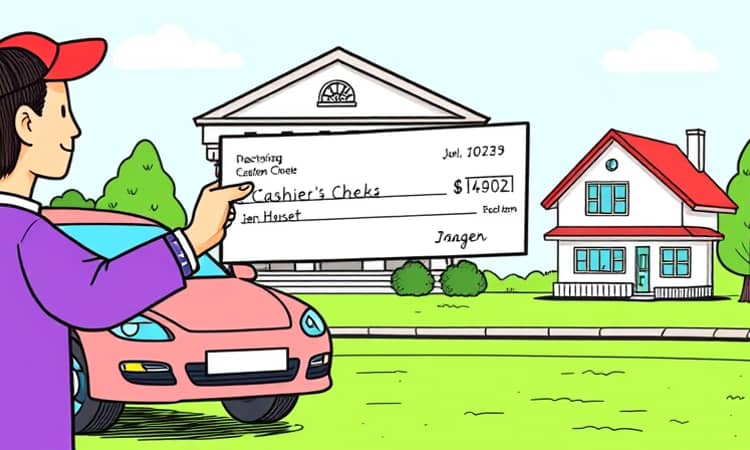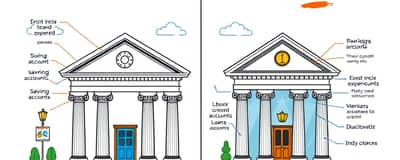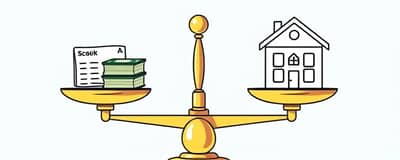Whether you're looking to pay for a large purchase like a car or to settle down on a new home, you may have heard of a cashier's check. But what exactly is it, and how does it differ from other payment methods? In this article, we'll explore the ins and outs of cashier's checks, including when to use one and how to obtain them. You'll learn about their unique benefits and how they work to alleviate concerns regarding payment security and untrustworthy methods.
Cashier's checks have been a staple in the world of finance for decades, but many people remain uncertain or unaware of their function. These checks are not drawn from a personal bank account but instead come directly from the bank, providing a level of assurance to the recipient. For anyone engaged in large transactions, knowing how to acquire and properly utilize a cashier's check can be invaluable.
Join us as we break down what a cashier's check is, how it works, when you might need one, and how to navigate the process of obtaining and cashing it. By the end, you'll be equipped with all the information you need to handle cashier's checks with confidence.
What Is a Cashier's Check?
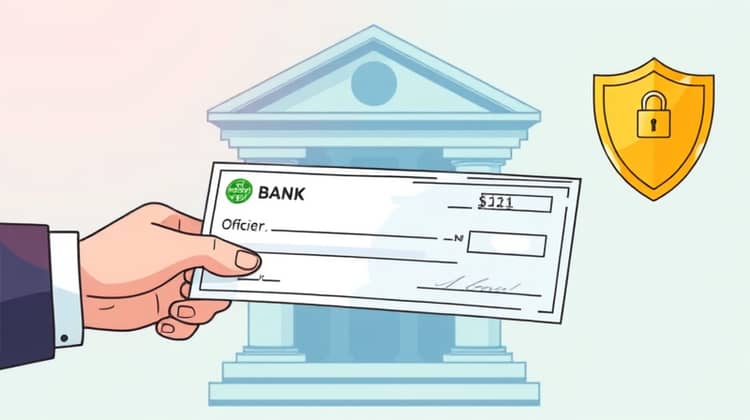
A cashier's check is a type of check guaranteed by a bank, drawn on the bank's own funds and signed by one of its officers. Unlike personal checks, which can bounce if there's insufficient funds in the account, cashier's checks are backed by the bank, providing a safe and secure way to make payments. This makes them particularly valuable for larger transactions, where the certainty of payment is crucial.
When you purchase a cashier's check, the bank will withdraw the amount from your account upfront. This ensures that the check can be honored regardless of changes in your account balance afterward. The bank essentially becomes the payer, which effectively reduces the risk of fraud when engaging in transactions with unfamiliar parties or entities.
These checks come with specific details, such as the check number, date, payee's name, and the amount. Most banks offer cashier's checks, and they can be obtained through a simple process that may vary slightly between institutions. Understanding the nature of cashier's checks can help you feel more secure during significant financial dealings.
How Does a Cashier's Check Work?
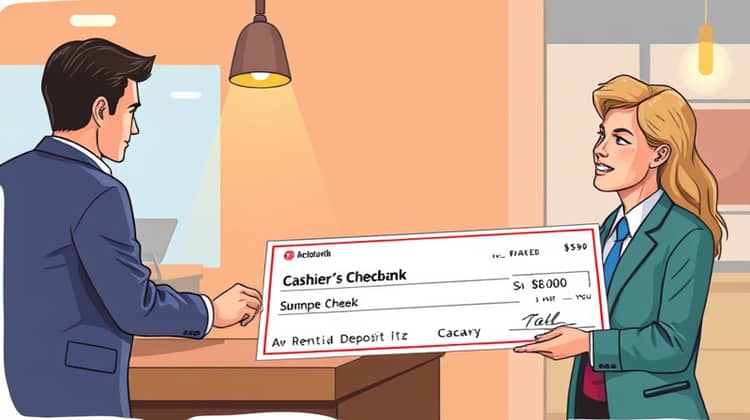
To obtain a cashier's check, you typically have to visit a bank in person and request one. The bank will require some basic information, such as the payee's name, the check amount, and potentially a purpose for the check. Once the information is confirmed, the bank will deduct the specified amount—plus any applicable fees—from your account and provide you the check.
Since cashier's checks are considered certified funds, they carry a high level of trustworthiness. The recipient can be confident that payment is guaranteed by the bank, minimizing the risk associated with issuing a personal check. This is why cashier's checks are preferred in scenarios such as real estate transactions or when making deposits for rentals.
Once the check is issued, the recipient can present it to their own bank for cashing or deposit. The funds are usually available quickly, although it’s important for the recipient to be aware of any potential holds that may apply. Understanding how cashier's checks function ensures clearer communication between parties involved in a financial transaction, solidifying trust in the process.
When Does It Make Sense to Get a Cashier’s Check?
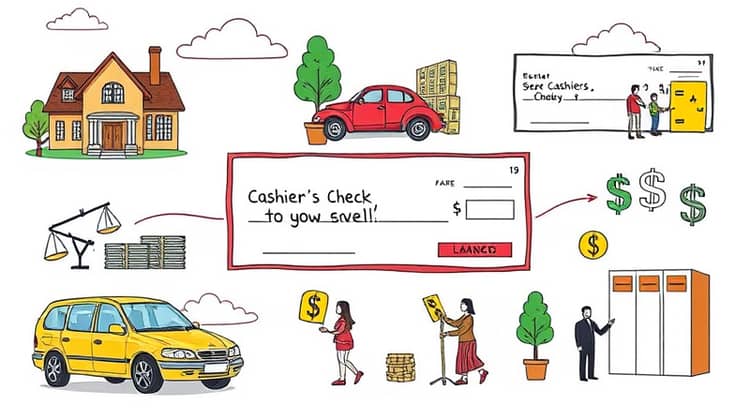
A cashier's check makes sense when dealing with large payments where personal checks may not be accepted or could raise suspicion. Common scenarios include real estate purchases, vehicle transactions, or any situation involving significant sums of money. Individuals participating in such transactions often seek a safer and more reliable method of payment, and cashier's checks provide that peace of mind.
- Real estate transactions
- Purchasing vehicles
- Paying for legal fees
- Large cash deposits
- Settlement of insurance claims
In summary, cashier's checks provide a secure method for carrying out big financial transactions without the worries associated with personal checks or cash. Knowing when to use a cashier's check can streamline your payment process and protect both you and the recipient.
How to Get a Cashier's Check
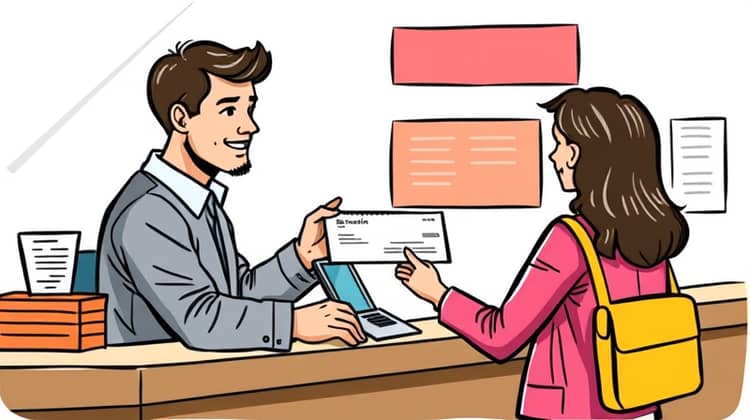
Getting a cashier's check is generally a straightforward process. You’ll need to go to a bank or credit union where you have an account. Ensure you have all necessary information on hand, including the payee's name and the exact amount you want on the check. Some institutions may require you to fill out a form or provide identification before issuing a check.
Fees are typically associated with cashier's checks, and these can vary between banks. It's best to inquire about the cost beforehand. After verifying your account balance and collecting the required information, the bank will issue the check, and you can proceed with your transaction.
- Visit your bank or credit union.
- Provide identification and necessary details such as the payee's name and check amount.
- Confirm the bank's fees for cashier's checks.
- The bank will withdraw the specified amount from your account and issue the check.
Once you receive your cashier's check, it's essential to handle it with care. Store it in a secure place until you are ready to deliver it for payment. Knowing each step in acquiring a cashier's check will ensure you are prepared for the transaction ahead.
How to Cash a Cashier’s Check
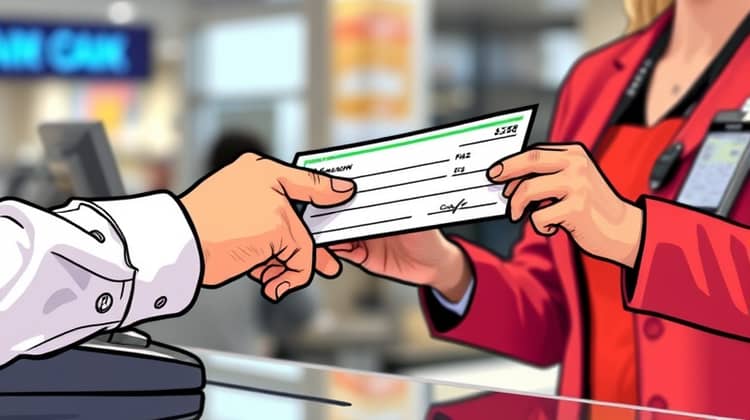
Cashing a cashier's check is generally simple but may vary slightly from bank to bank. If you receive a cashier’s check, the best first step is to present it to your bank. Because the funds come from the bank itself, they may allow you to cash the check even if you do not have an account with them, although limits on maximum amounts may apply.
After presenting the check, the teller will verify its validity. Depending on the bank’s policy, you may either get cash immediately or it could be deposited into your account. Familiarizing yourself with the process can significantly reduce any frustrations when cashing a cashier's check.
- Visit the bank where you want to cash the check.
- Present identification along with the cashier's check.
- Follow the teller's instructions for cashing or depositing the check.
Pay attention to any holds that might apply, as some banks impose holds on cashier's checks if it's the first time they are being cashed at that institution. Being informed will facilitate a smoother experience.
Cashier's Checks Fade in Popularity
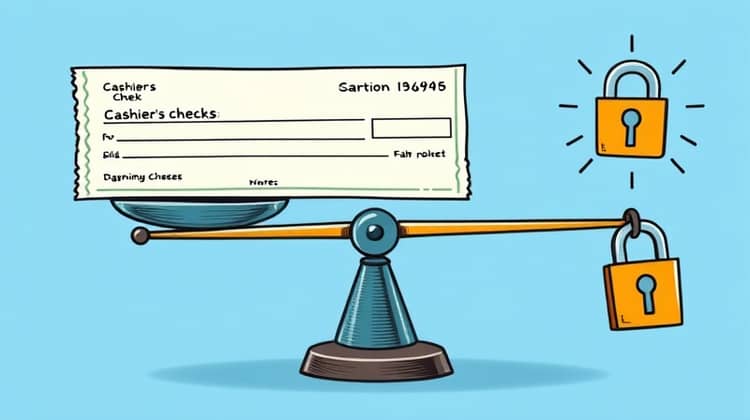
Despite their advantages, cashier's checks have seen a decline in usage. With the rise of electronic payment systems and mobile banking, many individuals now prefer the speed and convenience these alternatives offer. This shift in consumer preferences has caused some banks to reconsider the necessity of cashier's checks in their offerings.
However, it's important to note that while digital methods may be faster, they might not always match the security levels provided by a cashier's check, especially in high-value transactions. The level of trust provided by cashier's checks can be reassuring to both the payor and payee in an era where fraud remains a concern in digital transactions.
As technology continues to innovate the financial landscape, cashier's checks may evolve but still hold a critical position in certain financial transactions, offering a tangible sense of security that electronic methods struggle to replicate.
The Bottom Line
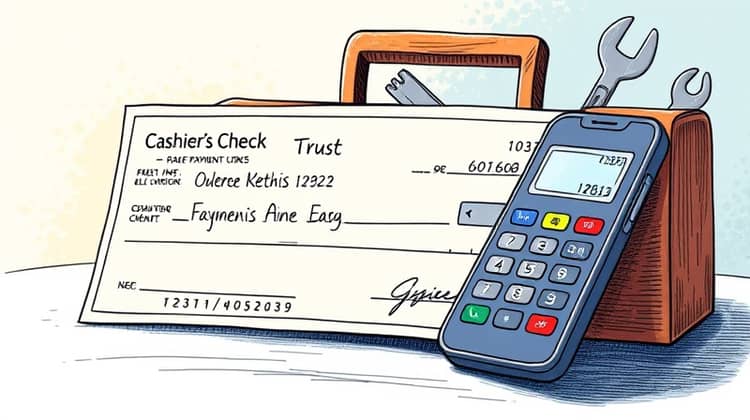
Cashier's checks are a secure payment method for large transactions where the assurance of funds is a priority. They provide safety not found in personal checks, making them suitable for scenarios where trust is paramount. Understanding when and how to use cashier's checks can help ensure smoother transactions and minimize potential risks.
While digital payment methods are on the rise, cashier's checks still serve a unique purpose in the financial world, especially for significant, one-time purchases. Knowing about cashier's checks gives consumers a powerful tool in their financial toolbox, one that can effectively reduce uncertainties in sizeable financial dealings.

